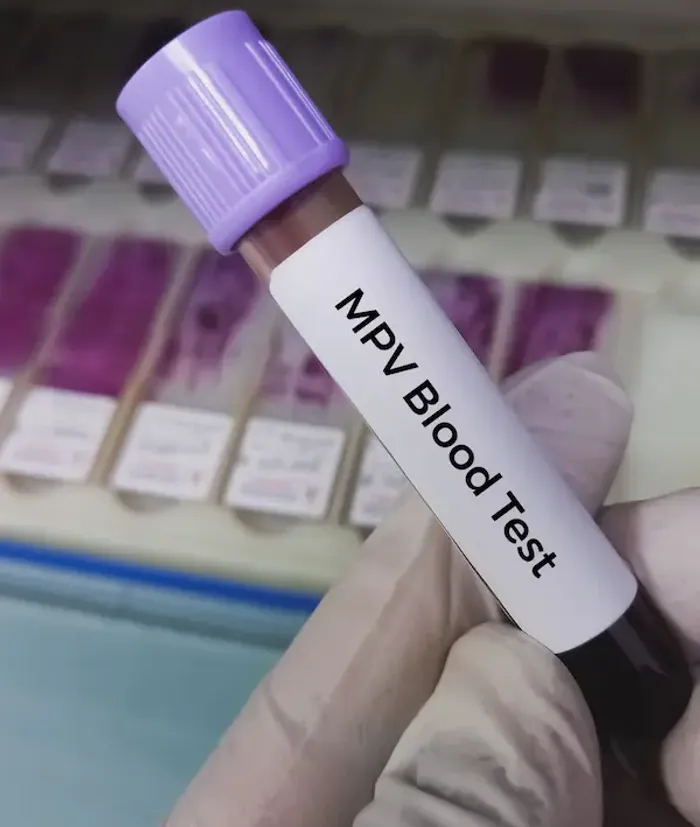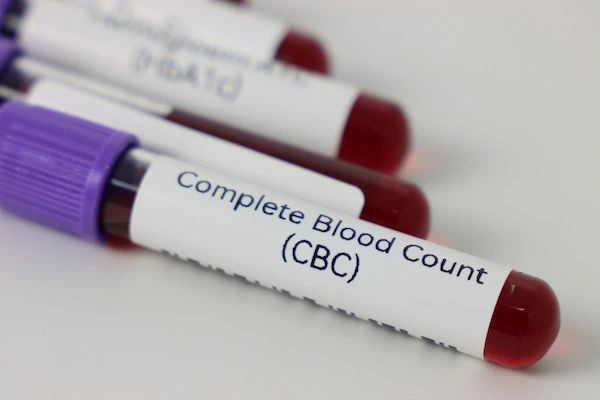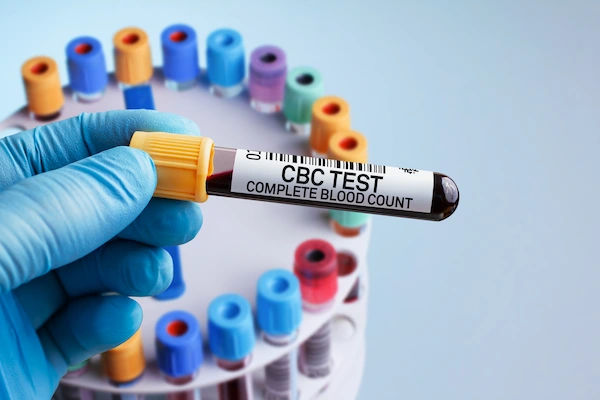MPV Blood Test and Its Results Analysis
An MPV blood test measures the average size of platelets, helping assess clotting and overall health. Learn what high or low MPV results mean and when further evaluation is needed.

Written by Dr. Rohinipriyanka Pondugula
Reviewed by Dr. D Bhanu Prakash MBBS, AFIH, Advanced certificate in critical care medicine, Fellowship in critical care medicine
Last updated on 29th Aug, 2025

Blood tests are essential tools that help doctors understand your health better. One such test is the Mean Platelet Volume (MPV) blood test, which measures the average size of your platelets—tiny blood cells that help with clotting. If you’ve been asked to take this test or have received your results, you might wonder what it means for your health.
This article will explain what an MPV test is, why it’s done, how to interpret the results, and what steps you can take if your levels are abnormal.
What Is an MPV Blood Test?
The Mean Platelet Volume (MPV) test is a simple blood test that checks the average size of your platelets. Platelets are small blood cells that help stop bleeding by forming clots. The size of these platelets can give doctors clues about how well your bone marrow is producing them and whether there’s an underlying health issue.
Why Is the MPV Test Done?
Doctors may recommend an MPV test if:
- You have unexplained bruising or excessive bleeding.
- You show signs of a blood disorder (like thrombocytopenia or thrombocytosis).
- You’re being monitored for conditions like diabetes, heart disease, or inflammatory disorders.
- You have symptoms like fatigue, frequent infections, or abnormal blood clotting.
- The MPV test is often part of a Complete Blood Count (CBC), which checks overall blood health.
Understanding Your MPV Test Results
MPV results are measured in femtoliters (fL), and the normal range is typically between 7.5 fL and 11.5 fL. However, this range may vary slightly depending on the lab.
What Does a High MPV Mean?
If your MPV is higher than normal, it means your platelets are larger than average. This could indicate:
- Increased platelet production (your body is making new platelets quickly).
- Bone marrow disorders (like myeloproliferative diseases).
- Heart disease or stroke risk (larger platelets are more active in clotting).
- Inflammatory conditions (such as rheumatoid arthritis or Crohn’s disease).
- Diabetes or thyroid disorders.
What Does a Low MPV Mean?
If your MPV is lower than normal, it suggests smaller platelets, which may be due to:
- Bone marrow suppression (from chemotherapy, infections, or vitamin deficiencies).
- Autoimmune disorders (like lupus or aplastic anemia).
- Chronic kidney disease.
- Certain medications (such as aspirin or heparin).
Get Your Health Assessed Here
How Does MPV Affect Your Health?
Abnormal MPV levels don’t always mean you have a serious condition, but they can be a sign of underlying issues:
- High MPV may increase the risk of excessive clotting, leading to heart attacks or strokes.
- Low MPV may mean your body isn’t producing enough healthy platelets, increasing bleeding risks.
- Your doctor will consider other blood test results (like platelet count) and symptoms before making a diagnosis.
What Should You Do If Your MPV Is Abnormal?
If your MPV levels are outside the normal range, don’t panic. Your doctor will guide you based on other test results and your medical history. Here’s what you can do:
1. Follow Up with Additional Tests
Your doctor may recommend:
- Repeat blood tests to confirm results.
- Bone marrow biopsy (if a blood disorder is suspected).
- Tests for diabetes, inflammation, or heart disease.
2. Make Healthy Lifestyle Changes
- Eat a balanced diet rich in iron (leafy greens, beans, lean meats) and vitamin B12 (fish, eggs, dairy).
- Stay hydrated to support blood circulation.
- Exercise regularly to improve circulation and heart health.
- Avoid smoking and excessive alcohol, which can affect platelet function.
3. Monitor Symptoms
Keep track of:
- Unexplained bruising or bleeding
- Fatigue, dizziness, or frequent infections.
- Swelling, pain, or numbness (possible clotting issues).
4. Consult a Specialist If Needed
If your doctor suspects a serious condition, they may refer you to a hematologist (blood specialist) or cardiologist (heart specialist).
When to Book a Doctor’s Appointment?
If you experience:
- Excessive bleeding from minor cuts.
- Frequent nosebleeds or gum bleeding.
- Unexplained bruises or red spots on the skin.
- Persistent fatigue or weakness.
- You can schedule a blood test or consultation with a doctor through Apollo 24|7 for expert advice and quick results.
Conclusion
The MPV blood test is a useful tool to assess platelet health and detect potential issues early. While abnormal results can be concerning, they don’t always mean something serious. The best approach is to consult your doctor, follow up with recommended tests, and adopt a healthy lifestyle to support your blood health.
If you have any concerns about your MPV results, don’t hesitate to reach out to a healthcare professional for personalized guidance.
Consult Top Specialists
Consult Top Specialists

Dr. Jawwad Mohammed Kaleem
General Practitioner
4 Years • MBBS
Hyderabad
Apollo 24|7 Clinic, Hyderabad

Dr. Mohammed Kamran
General Practitioner
5 Years • MBBS, FIDM
Nashik
Apollo 24|7 Clinic - Maharashtra, Nashik

Dr. M L Ezhilarasan
General Practitioner
6 Years • MBBS
Visakhapatnam
Apollo 24|7 Clinic - Andhra Pradesh, Visakhapatnam

Dr. Abhirup Chakrabarti
General Practitioner
10 Years • MBBS
Chennai
Dr Abhirup Chakrabarti, Chennai
Dr. Robin Jeya Bensam
General Practitioner
25 Years • MBBS, AFIH, FCIP, FRSH
Chennai
Robin Hospitals, Chennai



.webp)
